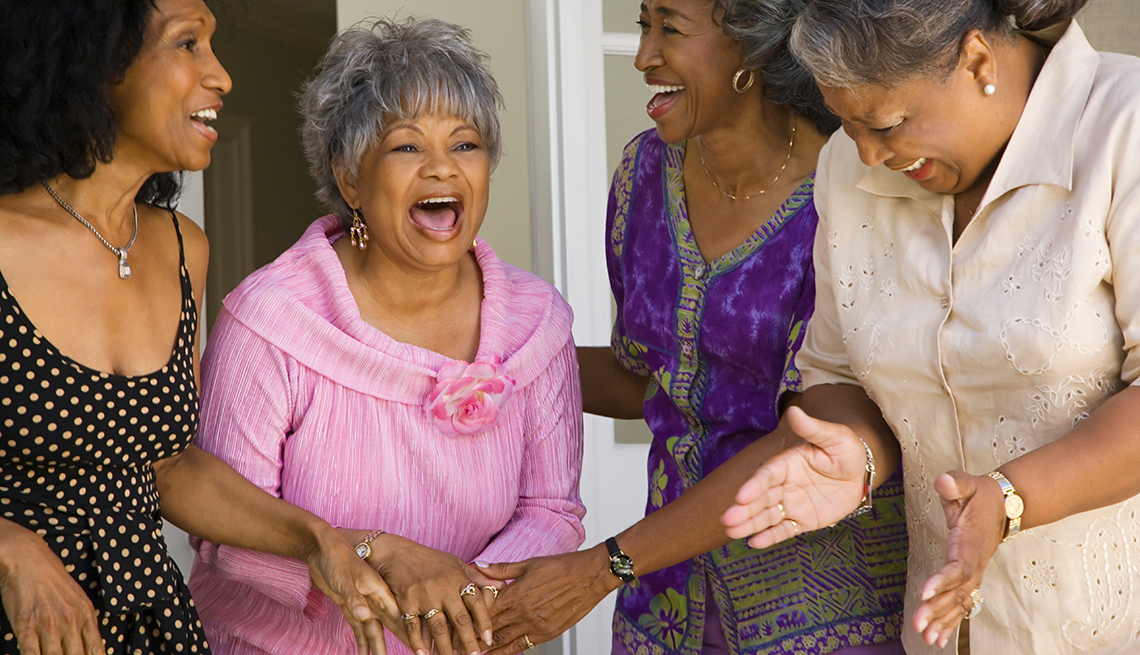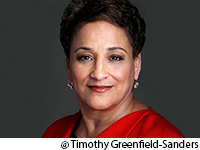Women 50+ Can Be Fearless About Aging
Be defined by who you are, your story, your experience, your positive vigor and realism
En español l Not long ago, I had lunch with a group of girlfriends who range in age from their early 50s to mid-70s.
As we chatted about what was going on in our lives, it occurred to me that no one passing by our table would guess these women's ages. They all looked fabulous, dressed to the nines in stylish outfits that reflected their exuberance for life.
It seemed as if every conversation was about plans for the future — upcoming trips, home renovations, adventures two years hence.
March is National Women's History Month, a time to celebrate the contributions of women to our nation's history and to the fabric of our society.
This year's theme, "Weaving the Stories of Women's Lives," focuses on the importance of hearing women's stories. These stories remind us that women are leaders, innovators, catalysts for change and role models for future generations.
Women's History Month is an opportunity to showcase how women in the 21st century inspire today's young women and girls and show them the real possibilities for their futures.
As CEO of AARP, I'm fortunate to follow in the footsteps of our founder, Dr. Ethel Percy Andrus, a remarkable woman who was the first female high school principal in California, a caregiver for her parents, and a social entrepreneur and innovator who started AARP after she retired and forged a lasting legacy of making life better for people as they age.
I am also fortunate to have my girlfriends, whose stories of struggle and triumph illustrate their optimism and their clear sense that experience has value. Each owns her age, not trying to be young again, but simply being the best lawyer, doctor, educator, business owner, lobbyist, grandmother, caregiver, homemaker that she can be.
To them, 50 is not the new 30, and 60 is not the new 40. In fact, 50 is the new 50. They convey this powerful message not by a lecture but by the example of living life fully and positively.
But these fearless and amazing women are also realistic. They dish out straight talk and help each other face what's next.
They know their needs are changing, and while they may not always like it, they face up to it. They are open to change and find strength in one another as they ponder downsizing, retirement and the unpredictable future.
Everyone in the group understands the rigors of family caregiving (most family caregivers in the U.S. are women) and recognizes that they may need help in providing care for a loved one. They also wonder who will provide care if and when they need it.
They love the idea of being up on the latest smartphone or tablet, although they may need help in figuring it out — but it's a learning experience they seek, not shun.
They are aware that as they get older, they will become more of a target for a scam or identity theft, and they want to know how to protect themselves. They worry about increasing medical costs and how to meet them.
My girlfriends and I share these outlooks and concerns with most Americans our age. It's why AARP keeps a keen focus on public policies dealing with caregiving, financial security in retirement and fraud protection. It's why we create programs that help people face — and embrace — change, and help them master new technology.
My girlfriends and millions of other women 50-plus — just like AARP — are changing the conversation about what it means to age without fear. All of us — men and women alike — want to be defined by who we are, not by how old we are.
Jo Ann Jenkins is the chief executive officer of AARP.
Also of Interest
- Fall back in love with your job
- Diving into a dream job
- 11 things you should never do again after 50
- Help bring relief to struggling seniors; find volunteer opportunities near you
Join AARP Now — Receive access to exclusive info, benefits and discounts


